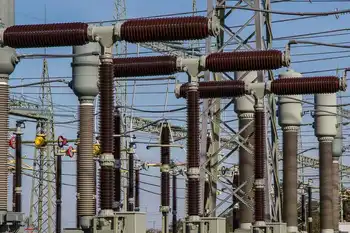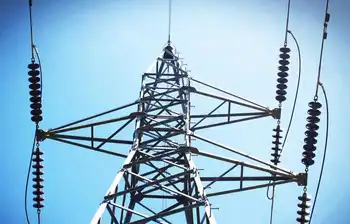The EPA would risk reliable electric power
By Charleston Daily Mail
CSA Z463 Electrical Maintenance -
Our customized live online or in‑person group training can be delivered to your staff at your location.

- Live Online
- 6 hours Instructor-led
- Group Training Available
"The reality is that the EPA's own staffers are - or used to be worried, and their political superiors have erased the warning."
The EPA, the newspaper said, "is trying to rush out a new utility rule that on paper will reduce mercury and other emissions but is really designed to close coal-fired power plants."
Apparently, without concern for the public.
The agency released its utility rule proposal in May.
It contained no expressions of concern about what the rule would do to the price or reliability of coal-fired power, or to the consumers, businesses and jobs that depend on it.
And because the proposal includes no reference to such concerns, the Journal said, "as a technical and legal matter, issues that are excluded from the Federal Register mean that the public is denied the opportunity to meaningfully comment on them."
But some staffers expressed concern about reliability even before the utility rule was formally proposed.
As the Wall Street Journal noted in an editorial earlier this week, the U.S. Environmental Protection Agency "continues to claim that its regulatory agenda won't degrade U.S. electric reliability. "The reality is that the EPA's own staffers are - or used to be worried, and their political superiors have erased the warning."
The EPA, the newspaper said, "is trying to rush out a new utility rule that on paper will reduce mercury and other emissions but is really designed to close coal-fired power plants."
Apparently, without concern for the public.
The agency released its utility rule proposal in May.
It contained no expressions of concern about what the rule would do to the price or reliability of coal-fired power, or to the consumers, businesses and jobs that depend on it.
And because the proposal includes no reference to such concerns, the Journal said, "as a technical and legal matter, issues that are excluded from the Federal Register mean that the public is denied the opportunity to meaningfully comment on them."
But some staffers expressed concern about reliability even before the utility rule was formally proposed.
Investigators plowing through hundreds of thousands of pages of the agency's electronic documents found a 934-page draft that said the EPA "is aware that concerns have been expressed by some, even in advance of this proposed rule, that this regulation may detrimentally impact the reliability of the electric grid."
The draft says "sources integral to reliable operation" - federalese for coal-fired power plants - could be forced to shut down, and that this "could result in localized reliability problems."
The draft "strongly encourages" transmission operators and state regulators to begin planning "as soon as possible" for "potential retired units." It recommended "transmission upgrades, targeted demand-side management strategies and construction of new generation."
The EPA contends it needs no more time to consider the impact of its rule - the most expensive in agency history - and could impose the rule by mid-December.
The Tulsa World reported Tuesday that Sens. Lisa Murkowski, R-Alaska, and James Inhofe, R-Oklahoma, "accused a federal agency on Monday of ignoring concerns that its sweeping proposal on power plants could cause blackouts."
Small wonder. Unreliable electricity, higher power bills and more job loss in these economic times?
West Virginians could be forgiven for wondering why Republicans were alone in expressing such concerns.











